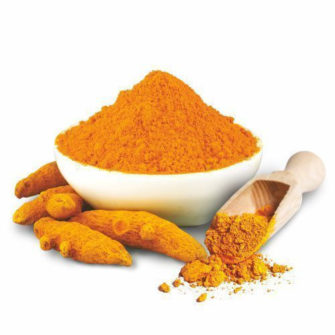The spice turmeric derives from the turmeric plant, which is mainly used in curries. The yellow-colored turmeric root contains a chemical known as curcumin and is used to make medicine, color cosmetics, and food. Curcumin is a naturally occurring compound within the turmeric plant’s roots. Curcumin is commonly used to treat conditions by reducing inflammation and pain.
Turmeric has low bioavailability, and as such, it is often poorly absorbed in the body. However, eating foods rich in fats such as avocados and nuts can help in the absorption of turmeric in the body. When black pepper is consumed with turmeric, is has also been found to aid in the absorption of turmeric in the body.
Curcumin’s beneficial anti-inflammatory and antioxidant effects have also been thought to be related to its desirable preventive or potential therapeutic capabilities. According to research, curcumin can aid in the treatment of arthritis, oxidative and inflammatory diseases, and other related ailments. Additionally, it might aid in the control of inflammation and muscle soreness brought on by exercise, improving recovery and subsequent performance in physically active people.
Turmeric Uses
The curcumin compound is used to treat:
- Depression
- Skin inflammation
- Rheumatoid arthritis
- Cancers
- Jaundice
- Joint pain
- Diarrhea
- Crohn’s disease
- Irritable bowel syndrome
- Colds
- Alzheimer’s disease
- Diabetes
- H. Pylori
- Bloating
- Heartburn
- High cholesterol
- Joint pain
- Kidney issues
- Ulcers, fatigue
- Liver issues
- Ulcers
- Hay fever
- Fibromyalgia
- Headaches
- Tuberculosis
- Lichen planus
Some people also use turmeric as a laxative to treat inflammatory bowel disease. It is also used on infected wounds, mouth and skin sores, acne, swellings, eye infections, gum disease, and ringworm.
Side Effects of Turmeric
Turmeric does not cause substantial side effects but some people have reported mild side effects such as:
- Diarrhea
- Nausea
- Dizziness
When applied to the skin, it is safe to use in the short term as an enema and mouthwash. It should not be used for more than eight months when taken by mouth. It is not advisable to use on people who are on blood thinners such as aspirin since the chemical compound curcumin in turmeric prevents blood clotting.
Contraindications Related to Turmeric
- High doses of turmeric supplements may cause a turmeric rush.
- High doses and long-term usage of turmeric supplements can cause gastrointestinal issues.
Origins of Turmeric
South Asia
My Favorites
- No Favorites Yet

